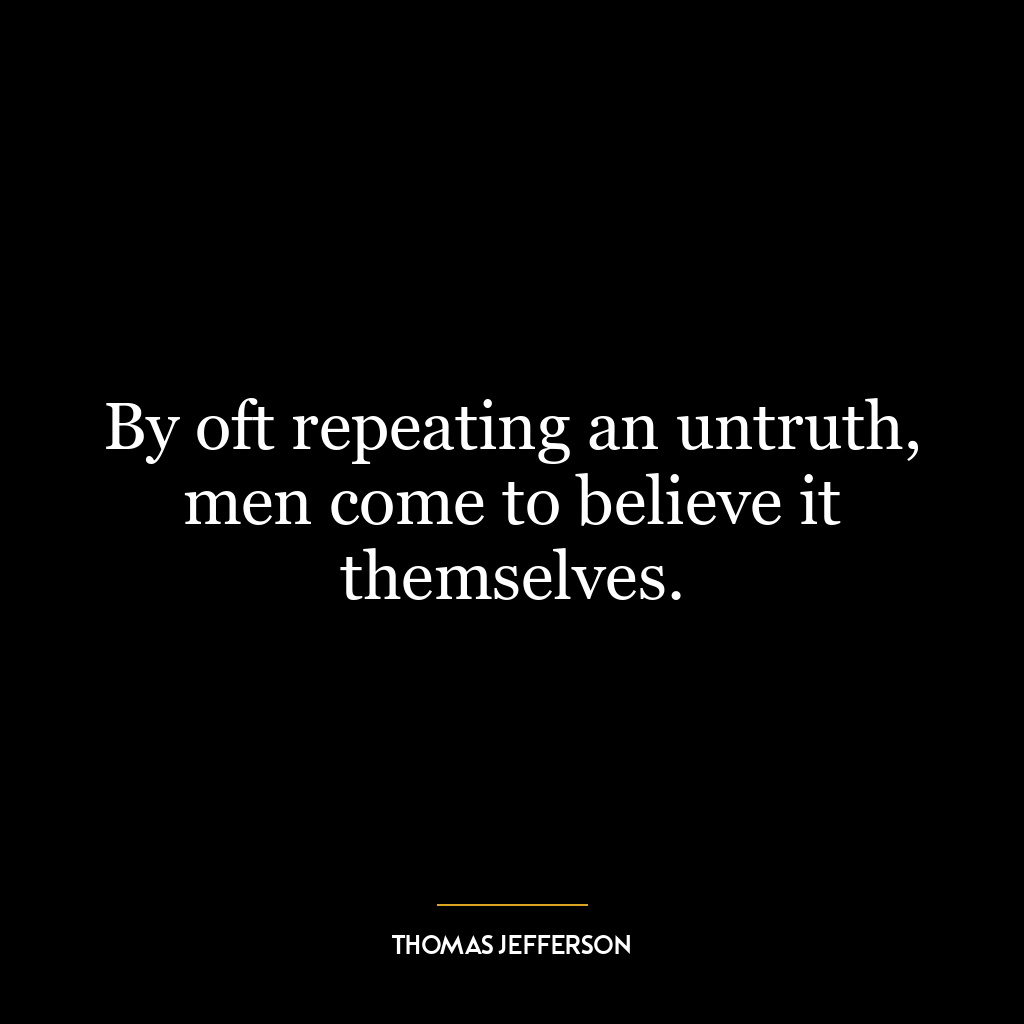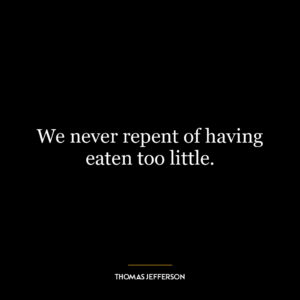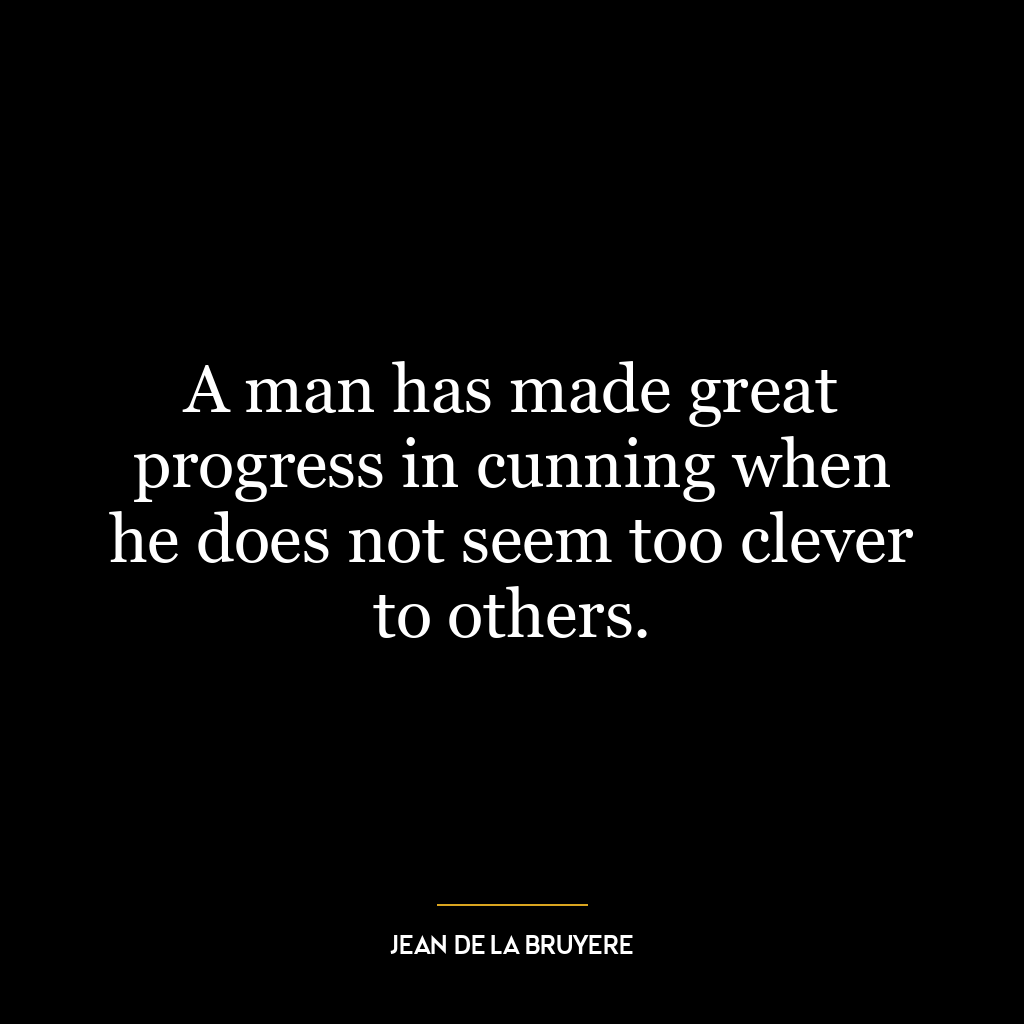This quote suggests that if a falsehood is repeated often enough, people start to accept it as truth, including the person who is disseminating the untruth. It’s an observation of human psychology where our perception of truth can be manipulated by the frequency and intensity with which information is presented.
This concept can be seen in various aspects of modern society, particularly in the realm of politics and media. In these contexts, certain narratives or claims may be constantly repeated, regardless of their veracity, until they are widely accepted as truth. This is often seen in the spreading of propaganda or misinformation, where repetition is used as a tool to shape public opinion.
In the realm of personal development, this concept can be applied in both positive and negative ways. On one hand, it may lead to self-deception, where individuals convince themselves of false beliefs or perceptions about their abilities or worth. On the other hand, it can also be used as a tool for growth and self-improvement. For example, positive affirmations are based on the idea that by regularly repeating positive statements to oneself, an individual can influence their mindset and behavior.
However, the quote also serves as a cautionary reminder about the power of words and the importance of critical thinking. It underscores the need to question and verify the information we receive, rather than accepting it blindly based on its repetition.















